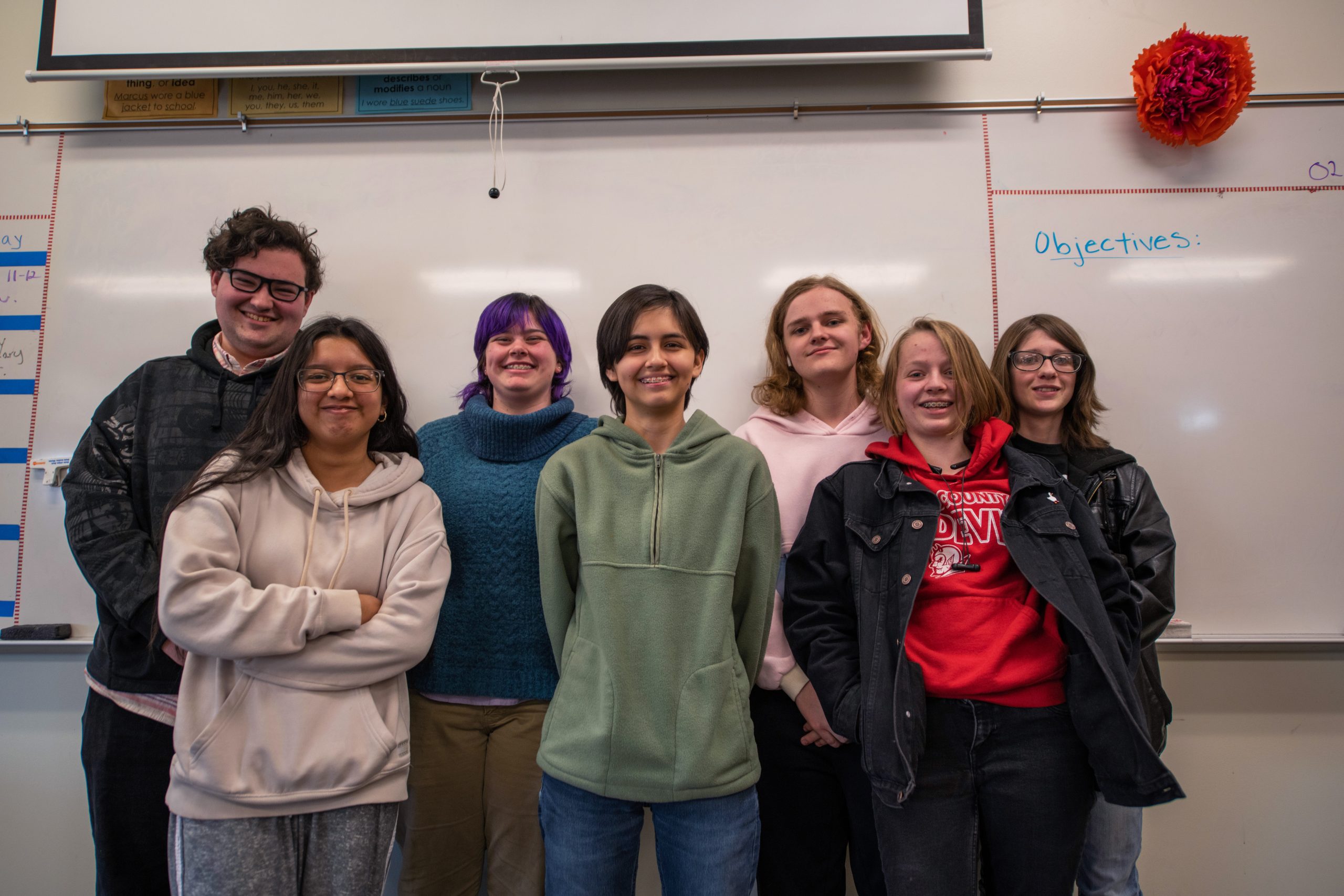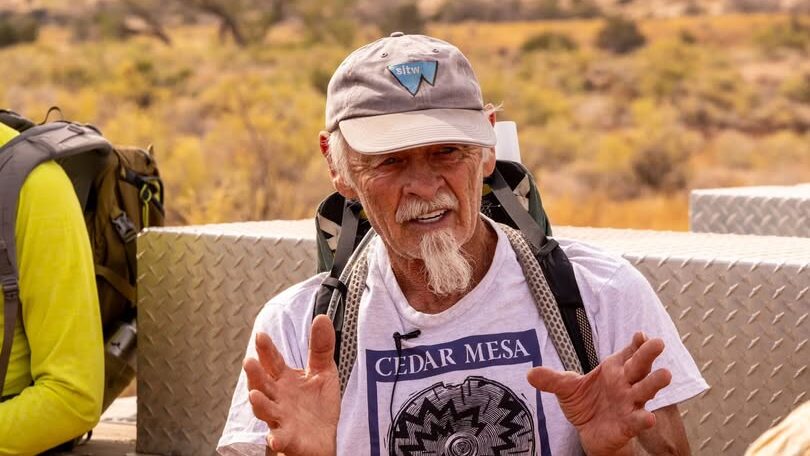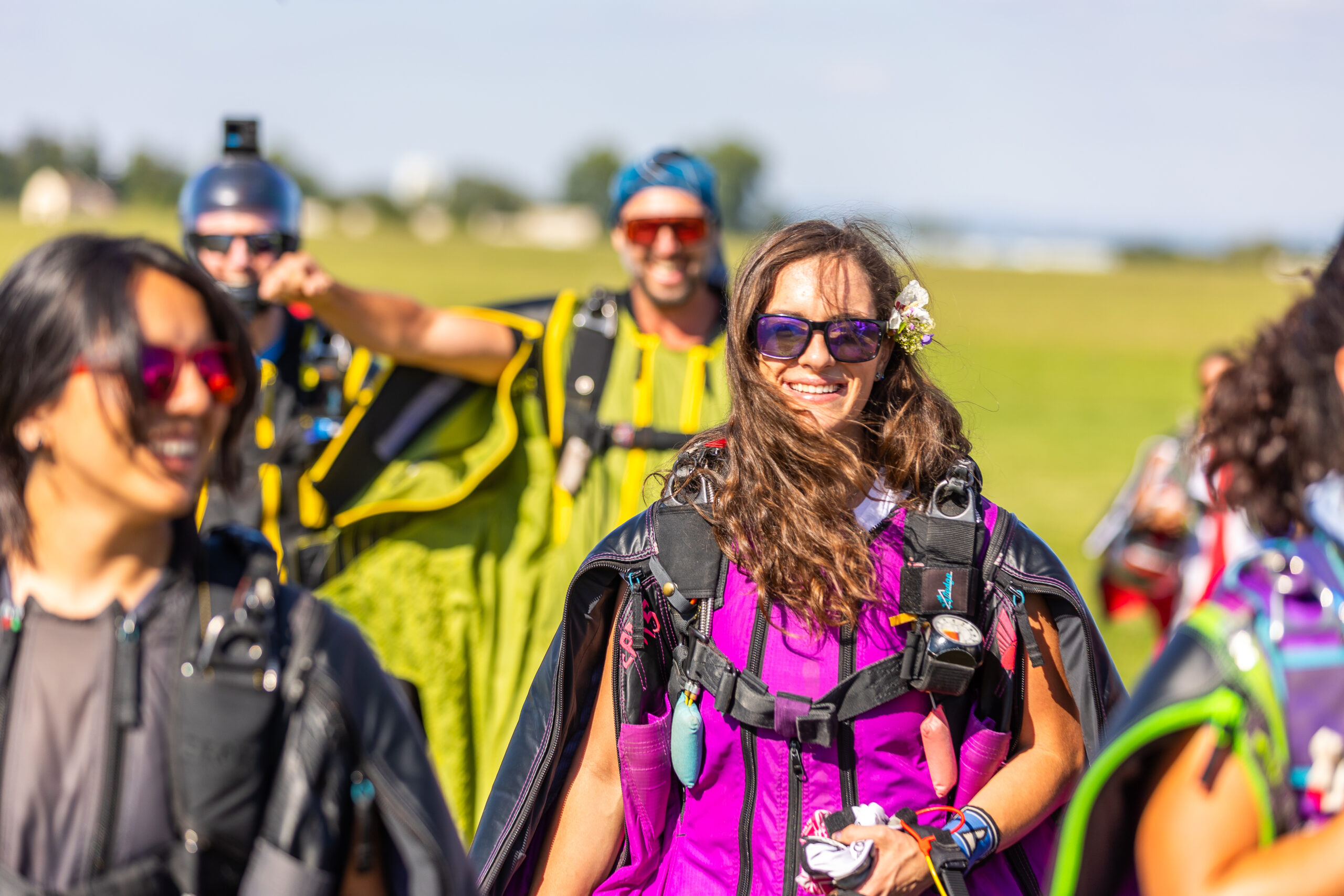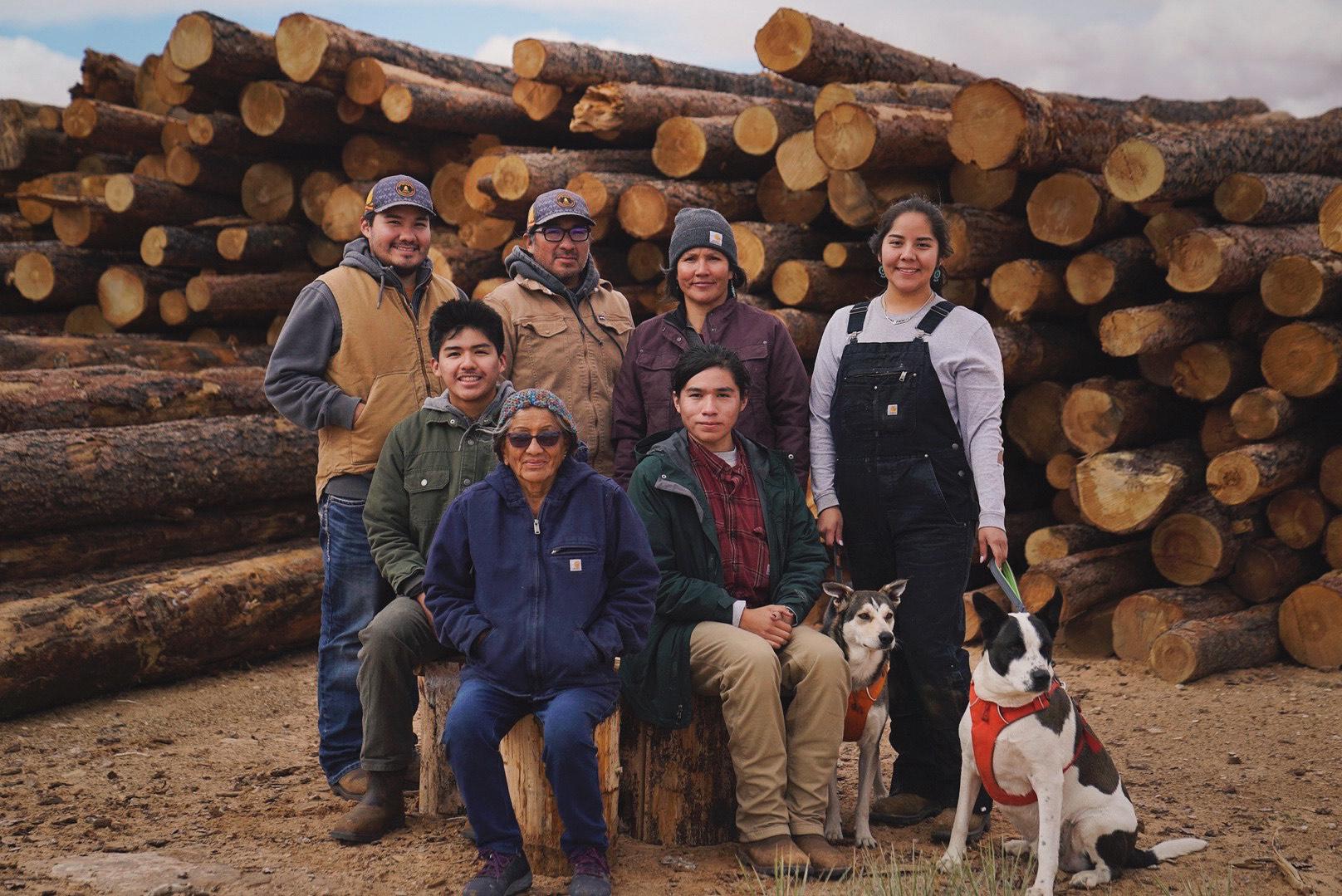Some information may be outdated.
When the Grand County High School debate team coach, Matthew Jonassaint, referred to the 2022-2023 debate team—lovingly!—as a band of misfits, he faced an immediate riot of noise from the seven team members who had agreed to talk—after school, on their own time, as practice was canceled!—to the newspaper. Laugher, true laughter and dubious guffaws, broke out.
“Are we the island of misfit toys, Matthew?” Emma said, incredulous.
“The Misfits is a cool band,” Jonassaint replied—the Misfits, of course, being the extremely cool horror-punk-rock band especially popular in the 70s and 80s. “Moving on.”
He called them misfits because this year’s team—together in person once again, after the pandemic sliced through the high school speech and debate world, changing crucial rules so events could be held via video conferencing—is especially busy, and especially new to the club.
Many of the team members do multiple sports and after-school activities, and many of them too joined the team because they wanted to learn how to better manage their shyness in public speaking or even their social anxiety. The debate team stands on the shoulders of giants—speech and debate at GCHS has a decades-long victorious legacy—and yet none of the current students joined initially because they wanted to be on a winning team. They joined because they were enamored by the promise of friendship and easy camaraderie, pitched to each of them before the season started by returning debate team members who visited English classes to recruit new members. They joined because for whatever reason, one Jonassaint can’t exactly pin down, speech and debate, instead of becoming an intense, try-hard, only-winning-matters club, has become a pocket of safety and acceptance for an incredibly diverse set of people.
“It gathers together a lot of unique individuals in this school,” Jonassaint said, an explanation for calling them misfits. The team seems more pleased—or at least, pleased enough not to tease—with this definition of themselves.
“I’ve worked in youth education in a lot of different ways,” Jonassaint said after the meeting. “A lot of young people right now … they have a lot of anxiety, and especially in this town, a lot of trauma. Throughout the years, I’ve really enjoyed how debate has gotten kids to get out of their shells, to be a little bit more aware of how to talk about things. With this community in particular, one of the really rewarding things to see is how a lot of the students are really tightly knit.”
But that’s not to say this team doesn’t win.
They’re currently celebrating major placements at the regionals tournament, which took place the weekend of the 25th. Gema and Emma won 1st place in public forum, a partner event where they debated whether or not the Republic of India should join the Artemis Accord—at regionals, they were assigned the position of “yes,” and had to prepare their arguments then and there.
“One of the reasons I did really well in this tournament was because of my partner,” Emma said, grinning at Gema. “We work really well together, and we developed our own strategy.”
“It’s like peanut butter and jelly,” Gema said, joking about Emma’s purple hair. Another strategy: the two have extreme game faces during tournaments—a no-smiling intimidation tactic that they’ve been told makes them look scary.
Rhys won 2nd place in informative speaking, an event where students pick a topic—Rhys’s was AI-generated art—and give a ten-minute speech, accompanied by a visual aid. Rhys went through what AI-generated art is, why people use it, and the backlash and lawsuits it’s faced.
“I really like performing, in a way—I treat it like I’m an entertainer,” Rhys said. “… I’m a very anxious person—I was super anxious to the point where I struggled to order food at a restaurant. I decided to join [speech and debate] because I wanted to get better at that, and it has helped me. It was kind of like, well, you’re in this event and we’re already at the tournament. So you have to do it whether you like it or not.”
Two years in, Rhys likes it.
Angeles won 3rd place in extemporaneous speaking, an event where students have 30 minutes to pick a question from a list of topics, then research, write, and memorize a speech. Angeles’s question concerned the Chinese spy balloon that was recently shot down over the United States—she spent 20 minutes researching and writing the speech, and 10 memorizing.
Anne also competed in the extemporaneous speaking event, winning 6th place—Anne received a lot of questions about the Biden administration, and also chose to answer a question about the spy balloon, composing a speech on the question, “Did the Biden administration appropriately respond to the Chinese spy balloon?”
Isaac, the team’s resident senior who is a former state champion, scored 4th place in the extemporaneous speaking event, composing a speech about the question, “Have Western oil sanctions failed in the Russian-Ukraine war?” Isaac has also competed in the past in the student congress event, an event where students write fake legislation and draft speeches defending them: Isaac remembers writing and debating legislation providing funding for every Federal building to provide menstrual care products in restrooms.
Now, the team is prepping for the state tournament—which, they were surprised to learn, is the weekend of March 18, not March 11. Phew! Emma in particular is relieved, because now she won’t have to go straight from her golf tournament to the debate tournament (she does a number of other extracurriculars, and debate sucked her in. She wandered into a meeting just to check it out and one month later, found herself on the bus to a tournament).
How are they preparing? Two-hour practice twice a week; tongue twisters—“Hey Isaac, can you cook a proper cup of coffee in a copper coffee pot?” “Yes, I can cook a proper cup of coffee in a copper coffee pot,” unsurprisingly, they don’t stumble; breathing exercises to mentally prepare; and lots, and lots, of research—Anne reads national news thoroughly every morning to stay on top of possible topics for the extemporaneous event (and plays Legend of Zelda—obviously).
After the state tournament, the team gets a small break. They’ll send off Isaac, who is graduating, then begin recruiting new members—this time, they will be the ones pitching the debate team in English classes. In June: the nationals tournament, this year in Phoenix.
Then the next school year begins, bringing with it the promise of new team members and the Red Rock Classic, a legendary tournament held at GCHS that draws teams from all over Utah, Colorado, and Nevada—the Red Rock Classic is known in particular for its unique “Character Congress” event, similar to the student congress event, except participants roleplay as fictional and non-fictional characters.
“[Debate] provides this space for, you know, theater people, people who like to argue, people who like the spotlight, people who really don’t like the spotlight, people who like Dungeons and Dragons, people who are like, ‘I read a lot of Tom Clancy’—that’s Gema,” Jonassant said. “It really brings together a lot of different people … in the time that I’ve been here, I’ve seen a lot of students who are trying to figure out who they are, what their identity is. And there are a lot of different ways to do that here—but debate, weirdly, collects them. It attracts all of those kids—it provides them a way to be together as a team, not just going off individually to compete. They feel like they’re a unit.”
Appreciate the coverage? Help keep local news alive.
Chip in to support the Moab Sun News.





